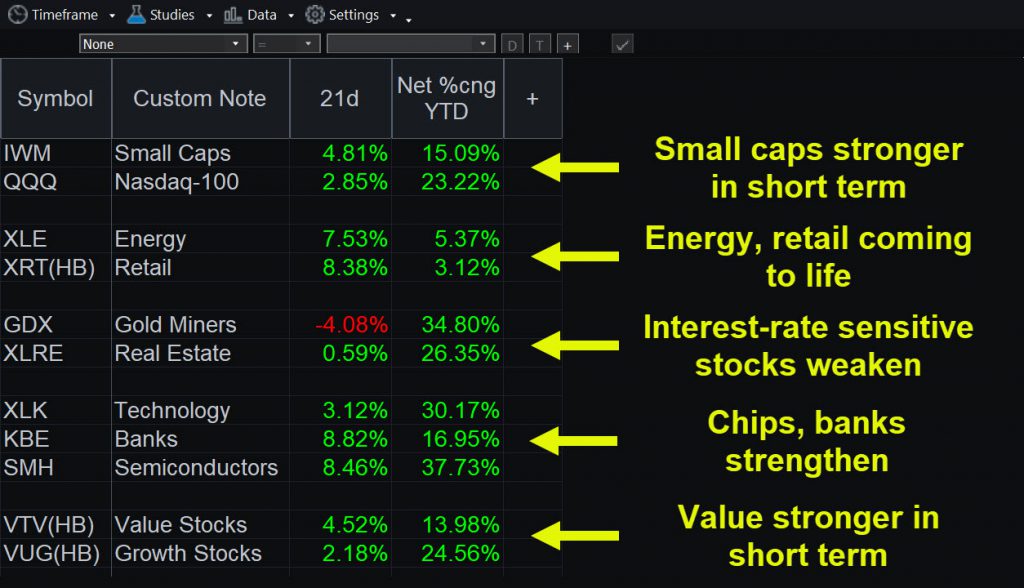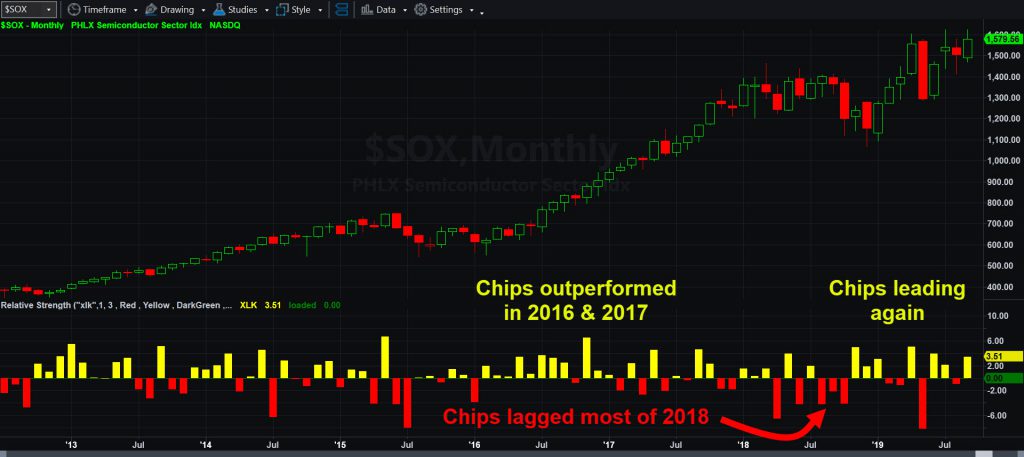A potentially big change tried to continue in the market yesterday.
Two weeks ago, a new kind of stocks began to rally: banks, industrials, retailers and small caps. Meanwhile previous outperformers including technology, gold miners and real-estate investment trusts suddenly lagged.
That’s a classic sign of investor rotation, when big money managers redeploy capital from one major theme to another. Check it out on RadarScreen®:

First, it reflects greater optimism about the economy. September’s new leaders benefit more from faster growth and higher interest rates. Banks are perhaps the biggest example because of the yield curve. When the economy’s better, longer-term rates rise and lenders make more money.
Second, investors are shifting from growth stocks and income stocks to value stocks. Growth stocks include some of the most prominent technology names, especially software and e-commerce. Income stocks include real-estate investment trusts and utilities.
Is a Recession Coming?
Waves of fear swept markets back in May and June as President Trump took punitive steps against China. Panicked money managers diverted billions to cash. Confidence wavered and interest rates crashed.
Ironically, economic reality never confirmed the anxiety. Jobless claims stayed low and retail sales rose. There were also few signs of increased bankruptcies or corporate-credit spreads widening.
Maybe that’s why equities bounced in September. Just a few hints of a possible trade deal, and money started coming back to riskier assets. Economic news has also stayed positive since then — including several better-than-expected housing reports.
This raises questions for the bears. If the economy managed to dodge a recession with the trade war in full force, what happens if it’s resolved? What happens to interest rates and the S&P 500 if Chinese and U.S. officials make progress at their big meeting next month in Washington? In both cases, the pendulum could swing back in a bullish direction.
The New Value Trade
As September draws toward a close, value stocks are set to have their best month relative to the broader market since President Trump was elected in November 2016. That period also saw interest rates spike and investors pivot to the same kinds of companies.

No one knows if the new trend will continue. But we can describe it with the help of TradeStation’s powerful analytics. Here are some key points:
- The iShares Russell 2000 (IWM) small-cap fund is outperforming the Invesco QQQ Trust (QQQ), which tracks mostly large-cap technology stocks in the Nasdaq-100.
- Bank stocks are outperforming. They trade at lower multiples (like price-to-book) than a decade ago, despite being better capitalized. Investors view them as a key trade for stronger economy because that would steepen the yield curve.
- Chips stocks are outperforming other technology stocks.
- Precious metals are struggling — especially as the U.S. dollar rips. They previously surged on recession fears.
- Energy stocks are viewed as both value plays (after a 20 percent drop in the last year) and as beneficiaries of a strong economy. Materials are similar.
- Retailers may also look like bargains, especially when investors consider the strong consumer picture and approaching holidays.
In conclusion, this post is intended for education purposes and isn’t intended as a recommendation. But September has featured an apparent shift in sentiment that traders may want to watch in coming weeks.


























